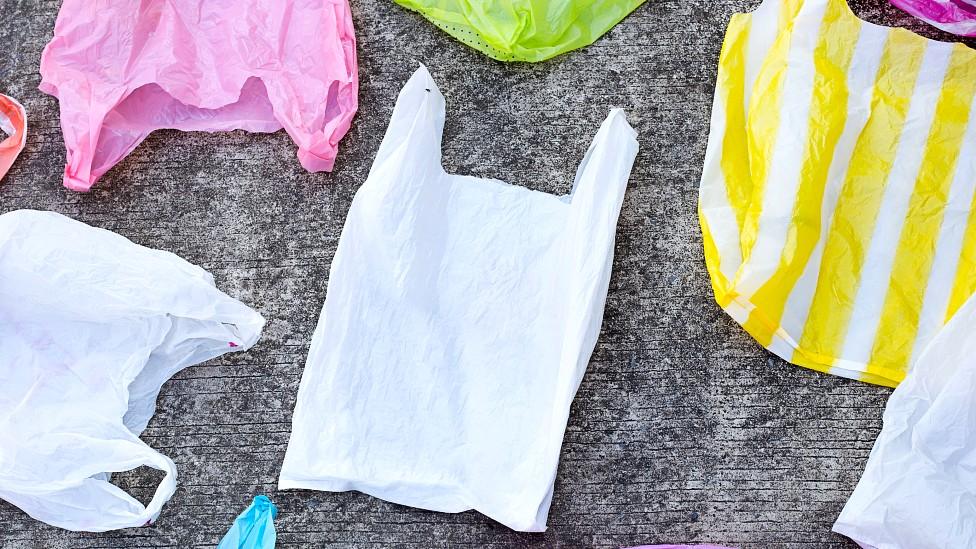Recycling: Wales is top UK performer for over 10 years
- Published
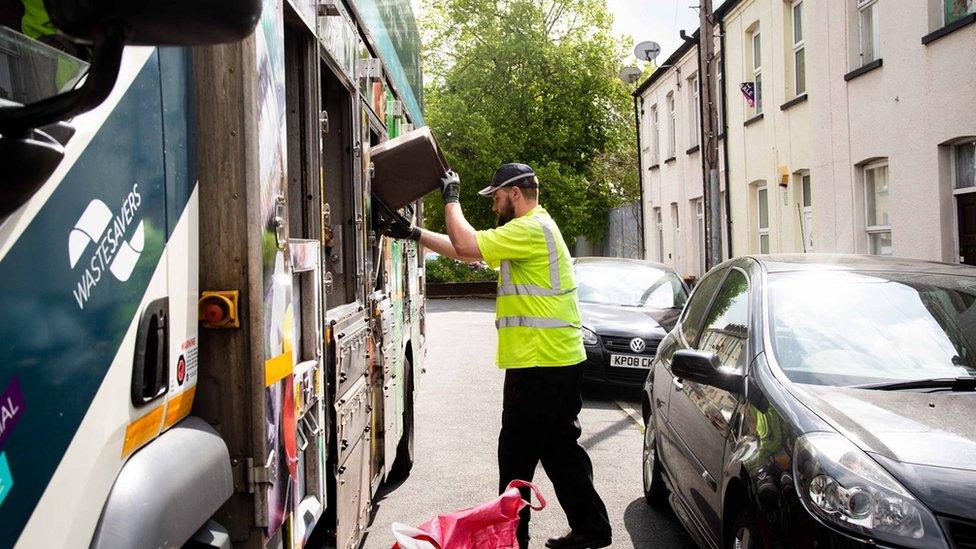
694,000 tonnes of household waste was recycled in Wales in 2020
Wales was the only UK nation to keep up its recycling rate during the pandemic and has now outperformed the other nations for at least 10 years running.
Wales recycled 56.5% of household waste in 2020, ahead of the UK average of 44.4%.
It was also the only UK nation to reach the minimum 50% target set by the European Union.
Climate Change Minister Julie James said Wales must "continue to raise our ambitions to reach zero waste by 2050".
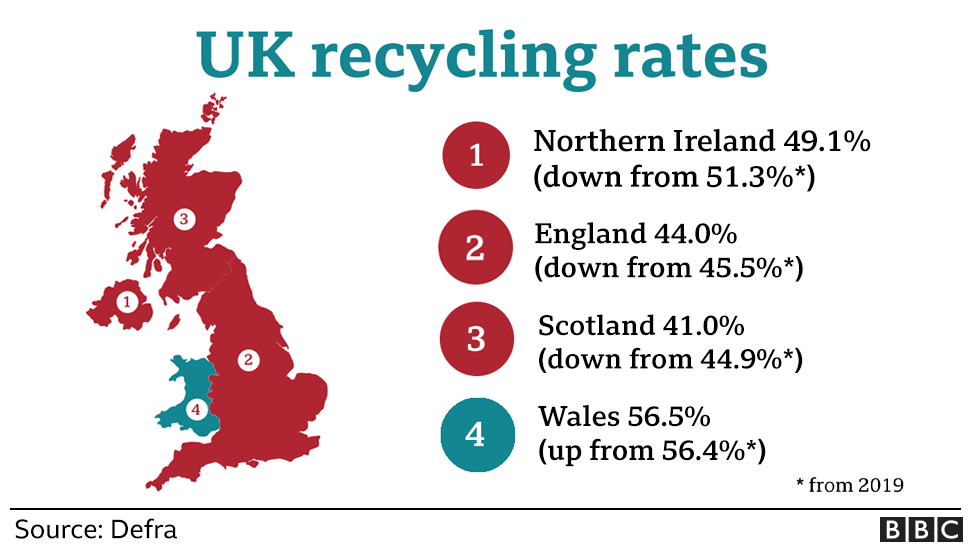
Wales continues to outperform other UK nations in household recycling
"Despite the pandemic and all the challenges it brought with it, local authorities managed to prioritise recycling, the collectors worked heroically all the way through, and the fantastic people of Wales continued to recycle," Ms James added.
In 2020 Wales generated 1.228 million tonnes of household waste, of which 694,000 tonnes was recycled.
It is aiming for a 70% recycling rate by 2024-2025.
Recycling rates in England, Scotland and Northern Ireland all dropped in 2020.
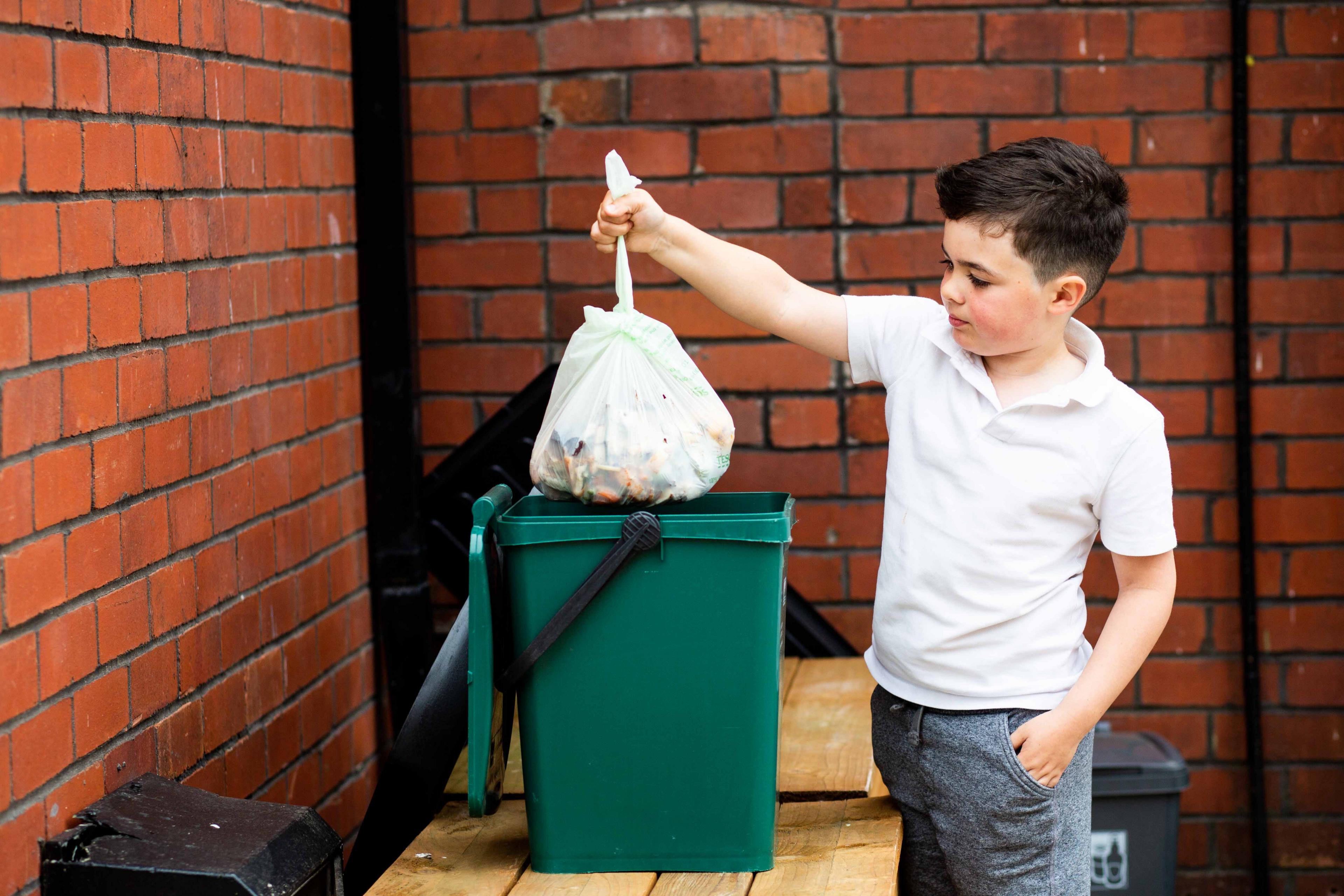
Food waste has been collected separately across Wales for the last decade
An effort has been made to recycle food waste in particular, with separate collections from households from across Wales for the past decade.
"When sent to landfill, the hot and compressed conditions convert food waste into methane gas, which is 30 to 80 times more damaging to climate change than carbon dioxide emissions," the Welsh government said.
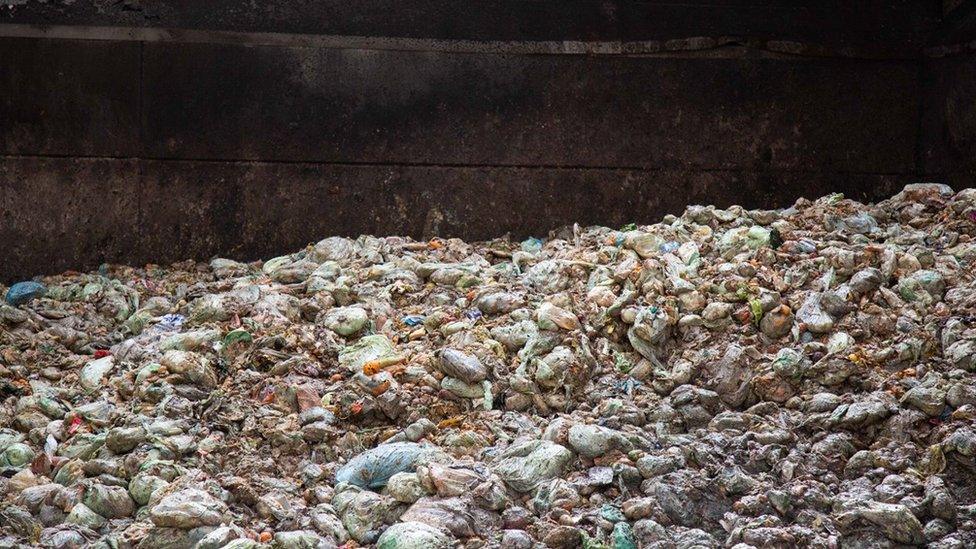
Food waste is sent to anaerobic digestion plants and converted to energy
"If food waste were a country, it would be the world's third biggest carbon emitter behind China and India. That's why food waste is ranked by the United Nations as one of the main target areas to limit runaway climate change."
In Wales, food waste from 22 local authorities is sent to one of five anaerobic digestion plants around the country and converted into 7 MW of energy.
That's enough to power around 12,000 homes, according to the Welsh government.
It says the high rate of household recycling in Wales saves more than 400,000 tonnes of CO2 per year from being released into the atmosphere.
"Most people in Wales now deem it unthinkable to scrape their food waste directly into the rubbish bin instead of their food caddy. This amazing change in behaviour by the Welsh public stops emissions from being released into the atmosphere that accelerate climate change," Ms James said.
The Welsh government wants to reach net zero carbon emissions by 2050 to tackle climate change "in earnest".

LIFE IS SWEET: Picture perfect cakes and the people who make them
HEY, MACH ARENA: Highlights from the Machynlleth Comedy Festival 2022

- Published22 May 2021
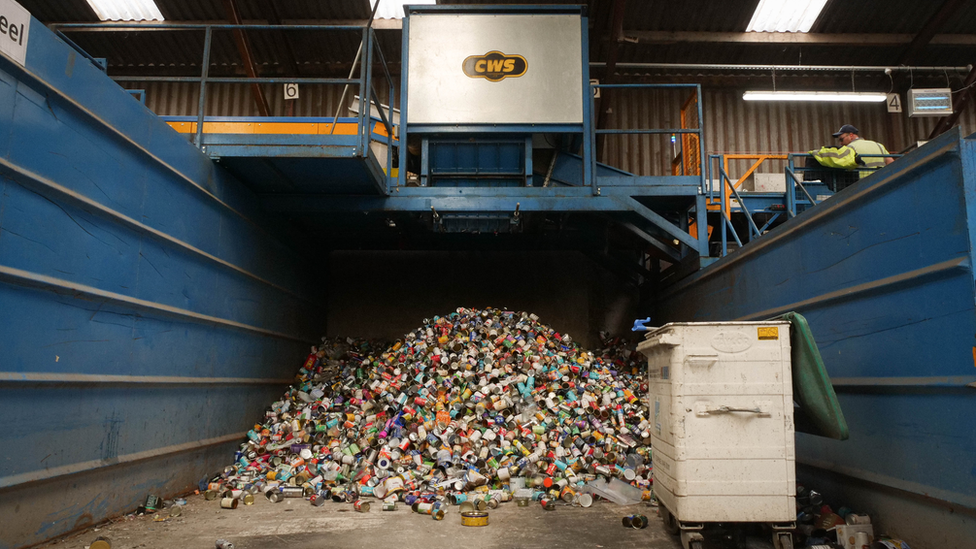
- Published4 April 2022
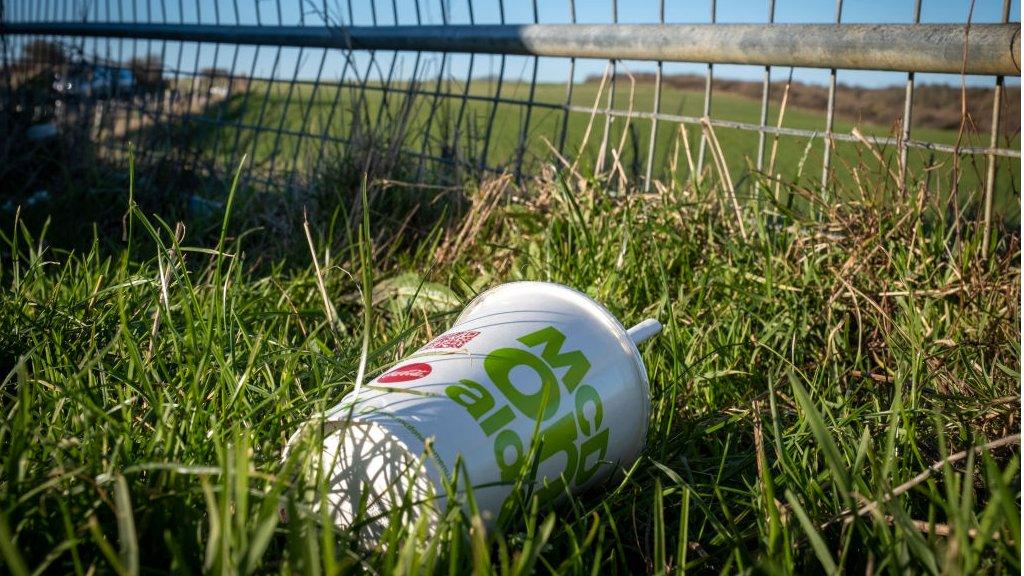
- Published12 December 2021
